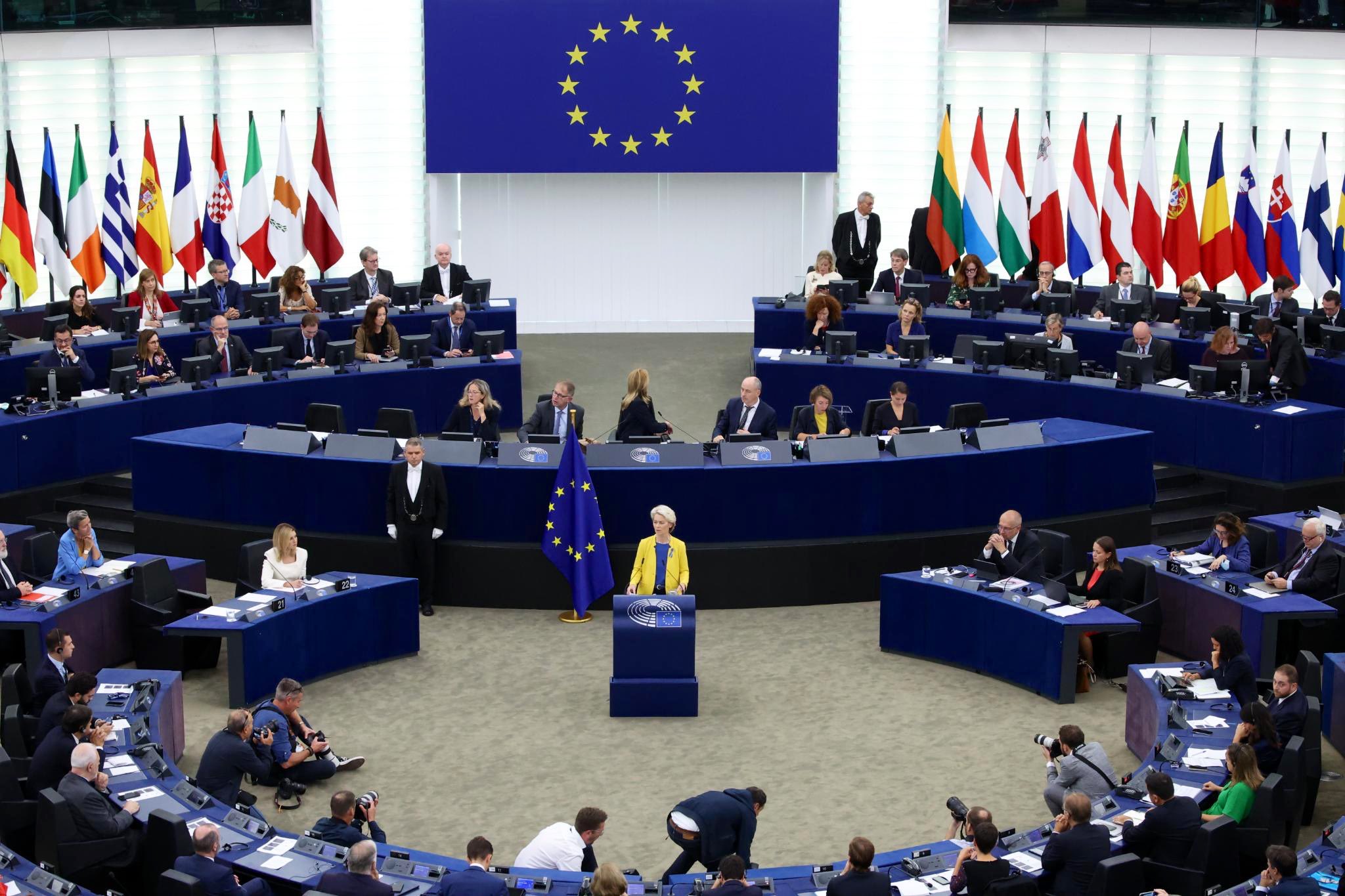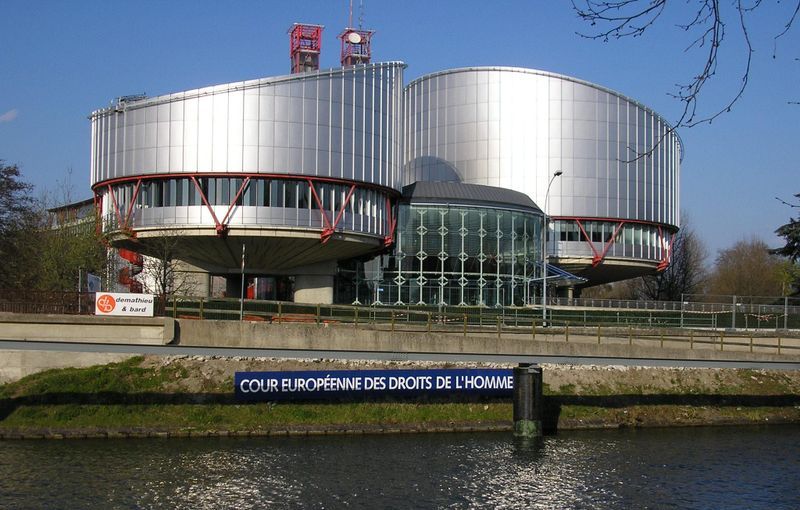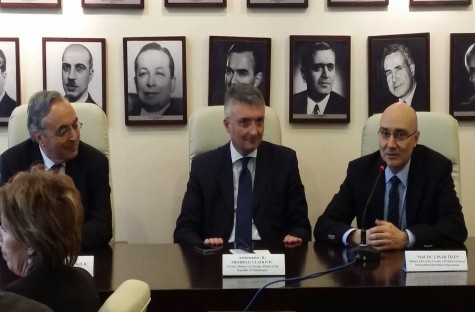Hazel ÇAĞAN ELBİR
Analyst, AVİM
On March 3rd, 2015, European Parliament adopted a resolution titled “The Armenian Genocide, Turkish Responsibility, and European Values”.
The resolution was proposed by the European People’s Party in the European Parliament. According to the resolution, Turkey should recognize the "genocide" and face her history as soon as possible. It is obviously seen that, the European People’s Party aims to promote a negative image of Turkey during the EU accession by generating a one-sided and provocative understanding of a historical event in order to politically pressurize Turkey. However, since, the resolutions have no legal or historical basis, the demands are refutable by the references.
Recognition of the Armenian genocide, “genocide” is a legal term that has to be explained by the legal definition. It is essential to bear in mind that there is no international legal judgement or resolution in support of the Armenian claims before any international legal court of legal authority. The genocide term is only used as a political connotation.
While the term "genocide" is underlined by the European People's Party (EPP), there was not only the "Armenian genocide", "the Pontic Greeks and Assyrians" were also supposedly subjected to "genocide " in Anatolia. 1915 is a tragic date for all the Anatolian people. For one of the communities in Anatolia, to call the events as "genocide" is to disregard the pains suffered by all of the inhabitants living in that territory. Including the Muslims, most of the population suffered from the effects of wartime hardships and disorder. Furthermore, there is no legal decision that there has been "genocide" by Ottomans in Anatolia. "Genocide" is a legal term and there is no "genocide consensus" on neither Armenian nor Pontic Greek and Assyrians. As for the Armenians, Pontus Greeks and Assyrians were also tried to be a part of a political propaganda material. All people who had been living in Anatolia suffered together. Furthermore, they all became a part of this pain. Nevertheless, to call 1915 events as a legal term, “genocide” is to disregard the pain of all people who had been living in Anatolia.
“Freedom of expression” is one of the pillars of being a European country as the European Parliament highlighted. Questioning the freedom of expression is directly pertaining to the Perinçek v. Switzerland case. It should not be forgotten that Europe should face its criteria of “freedom of expression”. Thus, in the case of Perinçek v. Switzerland on ECHR, it is ruled that there had been a violation of the article 10 where As a consequence, Perinçek was acquitted. Therefore, European countries should also be audited by the ECHR considering "freedom of expression."
Restoration of religious and cultural sites is also another point of the Resolution. As it is known, İstanbul and many other places in Anatolia, there are countless buildings, constructions, churches and any other architectural structures. The Balyan's in İstanbul built Dolmabahçe Sarayı, Beylerbeyi Sarayı, Ortaköy Camii and many more. Republic of Turkey has restored many of the churches and these churches are open to worship. The Armenian Patriarchate in Turkey has a website and it is available to see the conditions of the religious and cultural architectures in Turkey. If Turkey had a harassment and inconvenience with the existence of the Armenian architecture, İstanbul should not have been "İstanbul" today.
Turkey, as a strategic partner for the European Union, constitutes a significance considering economical and energy routes aspects. "Having regard to the fact that", (with the European Parliament parlance) the resolution is only released with the concerns of Armenian diaspora which sustains its presence in the European countries which constitute EPP in the European Parliament due to the centennial of the Armenian allegations - 1915 events.
On April 12, 2015, Pope Francis claimed that the 1915 events were the first genocide of the 20th century. However, Pope Francis disregards the very first industrialized extermination (which today would be defined as genocide) genocide of the 20th century against Nama’s and Herero’s by the Germans in 1904. Recently, Germany (both parliament and the government) is looking for accomplice for Germany’s “industrialized genocide” by recognizing the so-called Armenian genocide.
On April 15, the resolution was adopted by the European Parliament which urges Turkey to recognize the Armenian “genocide”. This non-binding resolution of the EP creates obstacles against the normalization process for Turkey and Armenia.
© 2009-2025 Center for Eurasian Studies (AVİM) All Rights Reserved

 "WATER DIVINER"
"WATER DIVINER"
 ARMENIA IS DISTURBED BY THE RADICAL ACTIVITIES IN THE DIASPORA
ARMENIA IS DISTURBED BY THE RADICAL ACTIVITIES IN THE DIASPORA
 EXAMPLES OF WIKIPEDIA'S FREQUENT DOUBLE STANDARDS: “WESTERN AZERBAIJAN” AND “WESTERN ARMENIA”
EXAMPLES OF WIKIPEDIA'S FREQUENT DOUBLE STANDARDS: “WESTERN AZERBAIJAN” AND “WESTERN ARMENIA”
 THE PRESIDENT OF THE EUROPEAN COMMISSION VON DER LEYEN CONFIRMED THE DISCRIMINATION AGAINST TÜRKİYE ONCE AGAIN
THE PRESIDENT OF THE EUROPEAN COMMISSION VON DER LEYEN CONFIRMED THE DISCRIMINATION AGAINST TÜRKİYE ONCE AGAIN
 FROM TERRORISM TO INVASION AND MASSACRE: GILBERT LEVON MINASSIAN
FROM TERRORISM TO INVASION AND MASSACRE: GILBERT LEVON MINASSIAN
 ARAM I’S EFFORTS TO GUIDE THE EUROPEAN COURT OF HUMAN RIGHTS
ARAM I’S EFFORTS TO GUIDE THE EUROPEAN COURT OF HUMAN RIGHTS
 THE IMPORTANCE OF 2015 FOR TURKEY AND THE MOVIE “WATER DIVINER” - Hande APAKAN
THE IMPORTANCE OF 2015 FOR TURKEY AND THE MOVIE “WATER DIVINER” - Hande APAKAN
CENTER FOR EURASIAN STUDIES (AVİM) HELD A BRAIN-STORMING MEETING ON THE TOPIC “ EURASIAN PERSPECTIVES- THE VIEWS FROM KAZAKHSTAN AND TURKEY”.
 “MONTENEGRO AND THE BALKANS” MEETING ORGANIZED BY AVIM AND ANKARA UNI. CENTER OF INTERNATIONAL ECONOMIC AND POLITICAL RESEARCH
“MONTENEGRO AND THE BALKANS” MEETING ORGANIZED BY AVIM AND ANKARA UNI. CENTER OF INTERNATIONAL ECONOMIC AND POLITICAL RESEARCH




























